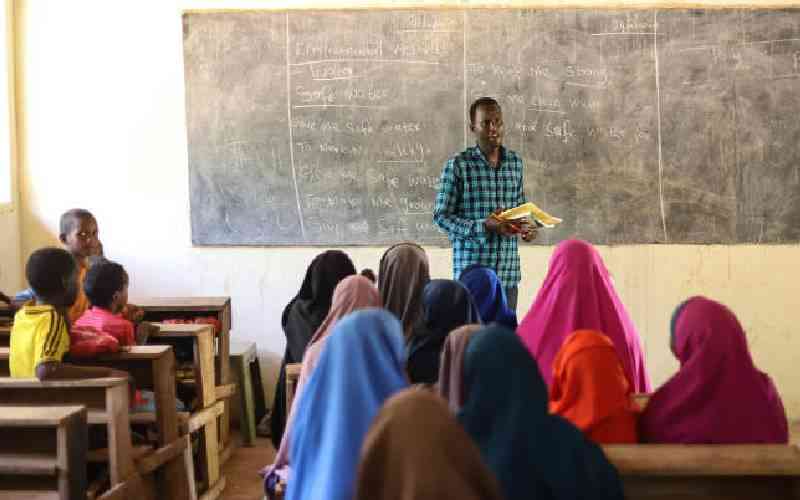
As the African Union (AU) sets its gaze on the 2024 theme, ‘Educate an African fit for the 21st Century: Building resilient education systems for increased access to inclusive, lifelong, quality, and relevant learning in Africa’, it becomes imperative to underscore the significance of refugee education within this broader framework. In a world grappling with multifaceted challenges, including record-high numbers of forced displacement, refugee education stands as a pivotal aspect of ensuring inclusive and sustainable development across the African continent, which hosts around 30 million displaced persons, according to UNHCR, the UN Refugee Agency.
Education serves as the cornerstone of empowerment, fostering resilience, and nurturing potential. However, amidst conflicts, natural disasters, and political instability, millions of individuals find themselves displaced, seeking refuge within and beyond African borders. For these individuals, education represents more than just an academic pursuit; it embodies hope, dignity, and a pathway towards rebuilding shattered lives. Education is also a human right, enshrined in the Universal Declaration of Human Rights.
At the heart of the AU's thematic focus lies the commitment to equipping Africans with the skills, knowledge, and competencies necessary to thrive in the 21st century. Yet, this vision remains incomplete without addressing the plight of refugees, who often face formidable barriers to accessing quality education.
Refugee children and youth constitute one of the most marginalized and vulnerable groups, with limited access to formal schooling, trained teachers, and educational resources. According to UNHCR, the UN Refugee Agency, only 65.3 per cent of refugee children attend primary school, and a mere 41.24 per cent enroll in secondary education, significantly lagging behind global averages. The consequences of this educational deficit reverberate across generations, perpetuating cycles of poverty, marginalization, and social exclusion.
However, beyond the moral imperative, investing in refugee education yields far-reaching benefits for societies and economies alike. By providing refugees with access to quality education, nations unlock their human capital potential, nurturing a skilled workforce capable of driving innovation, fostering social cohesion, and catalyzing sustainable development. Education empowers refugees to become active contributors to their communities, fostering a sense of agency and self-reliance amidst adversity.
Moreover, refugee education embodies the principles of inclusivity and equity enshrined within the AU's vision for African education systems. By prioritizing the educational needs of refugees and other displaced communities, nations demonstrate their commitment to leaving no one behind, irrespective of nationality, ethnicity, or social status. In doing so, they pave the way for more inclusive societies, where diversity is celebrated as a source of strength and resilience.
In the face of unprecedented global challenges, the AU's focus on building resilient education systems underscores the need for concerted action to address the educational needs of refugees. This necessitates collaborative efforts involving governments, civil society, international organizations, refugee-led organizations and the private sector to mobilize resources, develop innovative solutions, and foster partnerships aimed at expanding access to quality education for refugees.
As we strive to educate Africans fit for the 21st century, let us recognize that the journey towards inclusive and resilient education systems begins with a commitment to leave no refugee child behind. By investing in refugee education, we not only uphold the principles of solidarity and compassion but also unleash the transformative potential of every individual, enriching the tapestry of African societies and shaping a brighter future for generations to come.
Deraso Dokhole is the Head of Refugee Rights at The Legal Caravan and Nhial Deng is a refugee and Youth Advocate